




















INSIDE
The latest innovations in women’s self-care Page 36























The latest innovations in women’s self-care Page 36






The pandemic shone a spotlight on the value of communitybased pharmacy in reaching underserved communities





































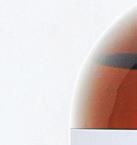


























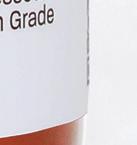




























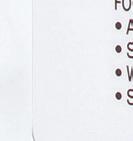

















































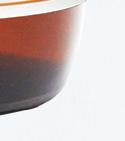

















The pandemic shone a spotlight on the value of communitybased pharmacy in reaching underserved communities


NEW: EXPANDED BEAUTY CONTENT!
20 INSIDE BEAUTY: SUN CARE


Shoppers expect sun care products to do more than just protect them from harmful rays
24 INSIDE BEAUTY: REX AWARDS
REX Awards 2023: Beauty
DSN editors selected this year’s Retail Excellence Awards winners in beauty and personal care for their efforts to make the category a top performer in the retail industry







28 PHARMACY: GENERICS

This month, Drug Store News is highlighting the standout generics brands that are going the extra mile
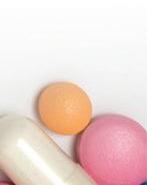


36 HEALTH: WOMEN’S HEALTH

Women are making self-care a priority and could benefit from innovations in menstrualcare, menopause-care and contraceptive products

40 HEALTH: DIABETES EDUCATION
Diabetes Education is Crucial
Better understanding of diet, exercise and product-use yields healthier outcomes and longer lives
DSN (ISSN 0191-7587) is published monthly 12 times a year by EnsembleIQ, 8550 W. Bryn Mawr Ave, Suite 200, Chicago, IL 60631. Subscription rate in the United States: $125 one year; $230 two year; $14 single issue copy; Canada and Mexico: $150 one year; $270 two year; $16 single issue copy; Foreign: $170 one year; $325 two year; $16 single issue copy. Periodicals postage paid at Chicago, IL, and additional mailing offices. POSTMASTER: Please send address changes to DSN, 8550 W. Bryn

7, July 2023. Copyright © 2023 by EnsembleIQ. All rights reserved.




People in healthcare knew that health inequity was a thing, but now we’re all aware. And we also know how much it costs the U.S. economy.
In May, the National Institutes of Health announced the publication of a groundbreaking new study that provides national and state-level estimates of the economic burden of health disparities by race and ethnicity and educational levels.
According to NIH, people in some racial and ethnic minority groups experience higher rates of poor health and disease for a range of health conditions, including diabetes, hypertension, obesity, asthma, heart disease, cancer and preterm birth, when compared to their White counterparts.
The study by the National Institute on Minority Health and Health Disparities (part of the NIH), concludes that in 2018 these types of racial and ethnic health disparities cost the U.S. economy $451 billion, a 41% increase from the previous estimate of $320 billion in 2014. It also finds that the total burden of educationrelated health disparities for persons with less than a college degree in 2018 reached $978 billion, about two times greater than the annual growth rate of the U.S. economy in 2018.
HIGHER RATES OF POOR HEALTH AND DISEASE FOR A RANGE OF HEALTH CONDITIONS, INCLUDING DIABETES, HYPERTENSION, OBESITY, ASTHMA, HEART DISEASE, CANCER AND PRETERM BIRTH, WHEN COMPARED TO THEIR WHITE COUNTERPARTS.
– NATIONAL INSTITUTES OF HEALTH
Of course, health inequity is not a new problem, but it’s much more visible thanks to the pandemic. Our cover story this month takes a look at the issue and how retail pharmacy is trying to help solve it.
“In the wake of the pandemic, mental health services, patient education, medication adherence and pharmacy access have emerged as key areas of focus for retail pharmacies,” our reporter writes. “They are increasingly partnering with community organizations to address these issues and taking steps to promote systemic changes that address disparities in healthcare.”
Retail pharmacy is doing its part, but as we found out, the problem is so large that it will take the resources of all stakeholders: “No one person, organization or entity can advance health equity alone,” Dr. Joneigh Khaldun, VP and chief health equity officer, CVS Health. “The private sector, employers, government, hospitals, academic organizations–everyone has a role to play.” dsn
8550 W. Bryn Mawr Ave., Ste. 200 Chicago, IL 60631 773.992.4450 Fax 773.992.4455 www.drugstorenews.com
BRAND MANAGEMENT
Senior Vice President & Publisher John Kenlon 516.650.2064 jkenlon@ensembleiq.com





EDITORIAL
Editor-in-Chief, Editorial Director Nigel F. Maynard nigelmaynard@ensembleiq.com

Managing Editor Julianne Mobilian jmobilian @ensembleiq.com
Senior Editor Sandra Levy slevy@ensembleiq.com
Online Editor Gisselle Gaitan ggaitan@ensembleiq.com
ADVERTISING SALES & BUSINESS
Northeast Manager Alex Tomas 212.756.5155 atomas@ensembleiq.com
Regional Manager Steven Werner 312.961.7162 swerner@ensembleiq.com
DESIGN/PRODUCTION/MARKETING


Senior Creative Director Colette Magliaro cmagliaro@ensembleiq.com


Production Manager Jackie Batson jbatson@ensembleiq.com
Marketing Manager Kathryn Abrahamsen kabrahamsen@ensembleiq.com
SUBSCRIPTION SERVICES

List Rental mbriganti@anteriad.com
Subscription Questions contact@drugstorenews.com
CORPORATE OFFICERS
Chief Executive Officer Jennifer Litterick
Chief Financial Officer Jane Volland
Chief People Officer Ann Jadown
Chief Strategy Officer Joe Territo Executive Vice President, Operations Derek Estey
EDITORIAL ADVISORY BOARD
John Beckner, NCPA
Becky Dant, Costco
J. Jeremy Faulks, Thrifty White Pharmacy


Doug M. Long, IQVIA
Nancy Lyons, Health Mart Pharmacy
Katie Scanlon, Publix Super Markets
Heidi Snyder, Drug World Pharmacies
PEOPLE IN SOME RACIAL AND ETHNIC MINORITY GROUPS EXPERIENCE






















































































































































































Kroger is making it easier for Supplemental Nutrition Assistance Program recipients to order groceries online as it brings e-commerce electronic benefit transfer payments to its Fred Meyer, Smith’s and QFC banners.
The expansion includes Fred Meyer and QFC stores throughout Oregon, Idaho and Washington, as well as all Smith’s locations. Customers can create an account through the respective grocer’s app or through their websites, then add an EBT account number as a new card under the “My Account” and “Wallet” options. Online EBT payment can only be used for SNAP-eligible products.
“Thousands of Fred Meyer and QFC shoppers place digital orders every week. Now, we are opening our digital grocery shopping experience to more people, with fresh, affordable food conveniently available through pickup or delivery,” said Tiffany Sanders, corporate affairs manager.
“Fred Meyer and QFC believe in being Fresh for Everyone, and this is another important way we are connecting our neighbors to the foods that will help them live healthier, thriving lives.”
Kroger’s Mid-Atlantic region, which covers stores in Ohio, Virginia, West Virginia, Kentucky and Tennessee, began accepting online SNAP payments in April.
Cincinnati-based Kroger has almost 2,800 retail food stores under a variety of banner names.
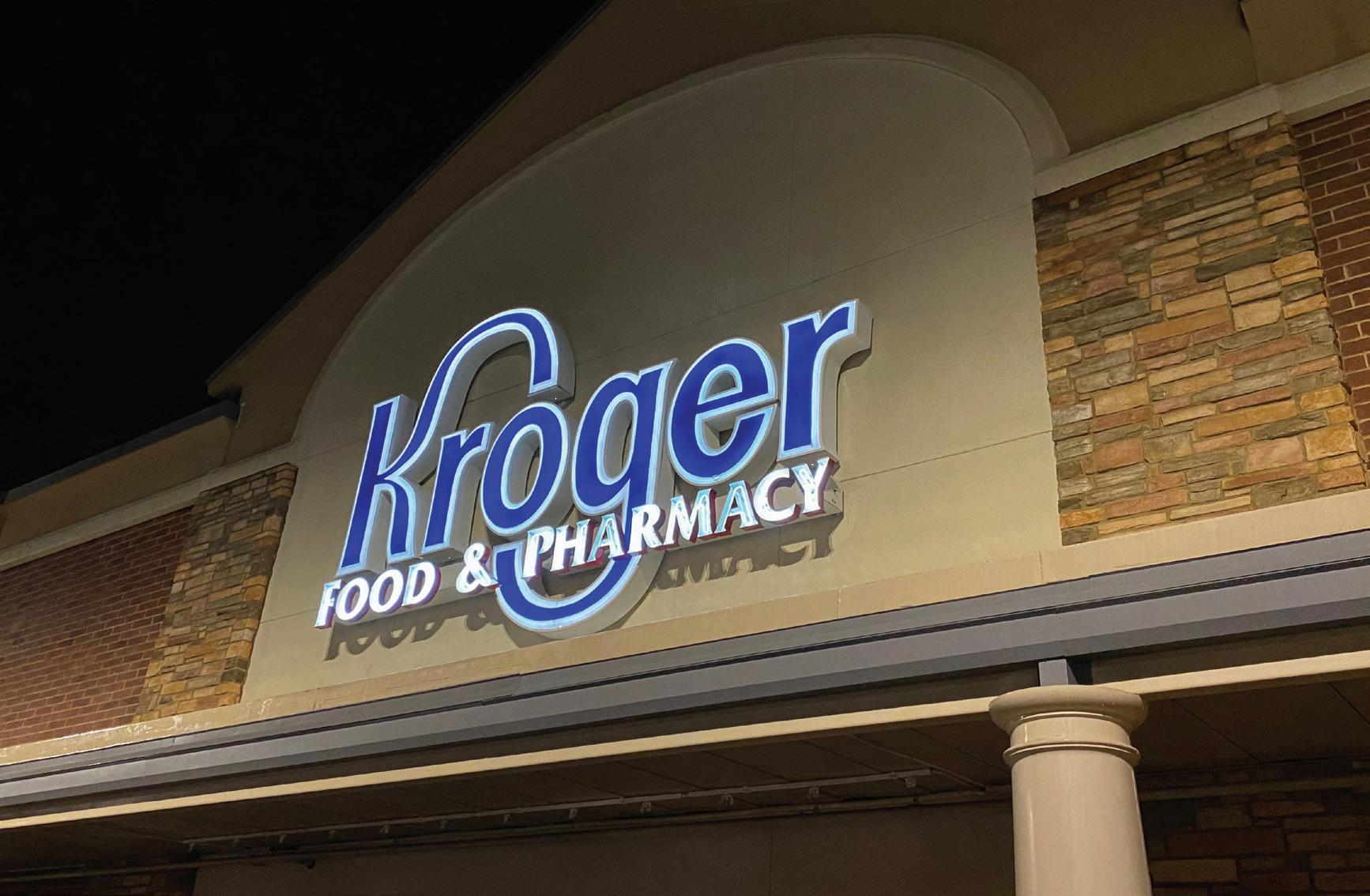
Walgreens Boots Alliance announced that it has sold 10.8 million shares of Option Care Health common stock pursuant to Rule 144 for proceeds of approximately $330 million.
The company said it intends to use the proceeds primarily for debt paydown, continued support of WBA’s
strategic priorities and transformation to a consumercentric healthcare company.
The transaction is another decisive action WBA is taking to unlock value and further simplify the company’s portfolio, the company said.








HRG’s five notable products from June 2023
Product introductions once recovered again in June, continuing their se-saw pattern that has held for the past year
For the month of June, suppliers introduced 133 products, which is 44 more items than they released in the previous month. Waukesha, Wis.-based HRG reviewed 37 products in the health category, 43 in the wellness sector and 52 items in the beauty aisle to see which ones stood out as Products to Watch.
Here is what they found:

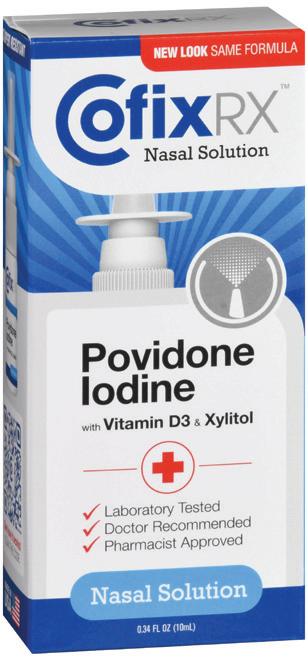
Triple Paste Adult Incontinence Rash Treatment from Advantice Health is formulated to create a moisture barrier to protect, soothe and treat irritated, chapped skin triggered by adult incontinence and sweat. It’s fragrance free, hypoallergenic, and can also reduce redness and chaffing. The treatment includes 12.8% zinc oxide and uses such ingredients as oat extract, chamomile and beeswax. It comes in an 8-oz. container.
CofixRX said its CofixRX Nasal Solution provides lasting cleansing effects against airborne viruses and pathogens, allergens, bacteria, dust, and particulates. Formulated with povidone iodine, xylitol, vitamin D3 and carrageenan, the nasal solution is formulated to work in 15 seconds and last up to eight hours. It comes in a 0.34-oz. bottle.

Burt’s Bees developed Kid’s Immune Support Gummies containing essential nutrients like zinc and vitamin C to help support a healthy immune system. The gummies are formulated with natural manuka honey, acerola cherry (vitamin C), natural orange flavors, and do not contain gluten, synthetic colors, or GMOs. It’s intended for children four years and older. Each bottle contains 30 gummies.

Reckitt’s Mucinex Fast-Max Kickstart Cold & Flu was developed to provide rapid, multi-symptom relief first thing in the morning. Utilizing menthol to awaken senses and provide an instant cooling sensation, the “all-in-one” treatment is designed to relieve nine symptoms in one dose, including sore throat, fever, chest congestion, cough, nasal congestion, sinus congestion, sinus pressure, headache and body pain. It comes in a 6-oz. bottle.
Advantice Health said that Amlactin Daily Vitamin C Cream combines the brand’s triple blend of lactic acid and vitamin C to produce radiant, brightened, glowing skin. Developed without dyes, fragrances, and parabens, the cream is formulated to exfoliate and moisturize normal to dry skin. The tube comes in 4.9 oz.. dsn












The pandemic shone a spotlight on the value of community-based pharmacy in reaching underserved communities
BY MARK HAMSTRARetail pharmacies have long sought to address the challenges around health equity in the United States, but their efforts gained more traction—and visibility—in the last three years.
The pandemic helped bring many of the health system’s inequities to light, as underserved communities were disproportionately impacted, Jim Kirby, chief commercial officer at the Kroger Health division of Kroger Co., told Drug Store News










“The COVID-19 pandemic brought needed attention to issues that have been impacting communities for years, including the urgent need to improve access to nutritious foods and to provide healthcare to vulnerable populations and underserved communities,” he said.



In the wake of the pandemic, mental health services, patient education, medication adherence and pharmacy access have emerged as key areas of focus for retail pharmacies. They are increasingly partnering with community organizations to address these issues and taking steps to promote systemic changes that address disparities in healthcare.
Research from consulting firm Deloitte has found that healthcare inequities add about $320 billion a year to health care spending.

InPen™ smart insulin pen helps your type 1 and type 2 patients on multiple daily injections (MDI) take the right insulin dose, at the right time. With a customized dose calculator, dosing reminders, and the ability to see active insulin, the InPen system removes the guesswork out of your patient’s diabetes management.



*Offer available to those with commercial insurance. Terms and conditions apply. Learn more bit.ly/35option
✓ Automatically calculates precise correction doses when blood glucose is entered.

✓ Provides clinical benefits of smart insulin pen therapy to less intensively managed patients.
✓ Allows you to advance your patients’ therapy when they are ready.
✓ Accurate dosing with precise half-unit increments.
“If left unaddressed, our actuaries predict the cost of health inequities will top $1 trillion by 2040,” Deloitte said in a recent blog post.
Racial disparity in particular has an inordinate impact on pharmaceutical care, according to Deloitte.
For example, financial or health insurance barriers delay or prevent Black patients from obtaining prescription drugs 70% of the time, vs. 55% of the time for white patients, the firm said, citing research from the 2019 National Healthcare Quality and Disparities Report, Agency for Healthcare Research and Quality, published in June 2021.
In addition, lack of access to pharmacies in some low-income areas can cause lower levels of prescription drug adherence among Black and Hispanic patients, Deloitte said, citing research from the Los Angeles market published in the Journal of Racial and Ethnic Health Disparities in 2020.
Patients in these areas also tend to speak English as a second language, often do not own a vehicle, live below the federal poverty line and lack health insurance, Deloitte reported.
Similarly LGBTQ+ patients also tend to have negative health care experiences, according to Deloitte.
“Every organization should plan to address health inequities by designing and enabling the future of health care around people and equity,” the research firm concluded. “Health care incumbents, industry disruptors, community organizations, and government agencies each have a role to play in removing the barriers that lead to health inequities and turning unaffordable costs into opportunities.”
Dr. Joneigh Khaldun, VP and chief health equity officer, CVS Health, said the company has a longstanding commitment to advance health equity.
“To us, health equity is not a series of programs—it’s how we do business,” she said in an interview with Drug Store News. “We leverage our capabilities and reach to create meaningful change as part of our cross-enterprise efforts to advance health equity.”
The company’s CVS Pharmacy division seeks to address barriers to care by providing the communities it serves with increased access to products and services that are affordable and convenient, Khaldun said.
To overcome barriers to equitable menstrual care, CVS reduced the price of store brand period
products by 25%, absorbed the so-called “menstrual tax”—the sales tax some states levy on menstrual products—in 12 states and partnered with national organizations working to eliminate the tax altogether in 26 states.
The CVS Health division, meanwhile, continues to expand access to mental health services. It offers depression screenings in more than 1,000 of its MinuteClinic locations nationwide. In select MinuteClinic locations, consumers can access in-person and virtual mental health services, including cognitive behavioral therapy. Project Health, the company’s series of free health screening programs, has expanded to offer free depression screenings at all of its events this year.
The CVS Caremark division invests in programs that address barriers to care to alleviate inequities for historically marginalized communities, Khaldun said. The division is focused on three conditions that disproportionately affect people of color: sickle cell disease, HIV and heart disease.
The CVS health equity initiative focuses on three areas, Khaldun said:
• Empowering employees: “We are empowering our colleagues by providing robust training and learning opportunities to accelerate our ability to help every customer, member and patient we serve achieve optimal health,” she said.
• Measurement: CVS is standardizing and improving its collection of data related to race, ethnicity, language, sex, gender identity, sexual orientation and disability for its consumers, members, patients and providers, Khaldun said.
• Taking bold actions: “We are implementing evidence-based strategies and creating collaborations to address some of the most pressing public health challenges in the country, with an initial focus on heart health, mental health and women’s health,” she said.
“By using data analytics to identify inequities and taking action to address them, we strive to improve health care access and quality of health for every population we serve,” said Khaldun.
CVS also recognizes the power of collaboration, she said.
“No one person, organization or entity can advance health equity alone,” said Khaldun. “The private sector, employers, government, hospitals, academic organizations—everyone has a role to play.”
Earlier this year, CVS launched the CVS Health Community Equity Alliance, which brings academic and health care institutions together to help expand the community health worker workforce and address health inequities in heart health and mental health, she said.
Dr. Joneigh Khaldun, VP and chief health equity officer, CVS Health
“No one person, organization or entity can advance health equity alone. The private sector, employers, government, hospitals, academic organizations–everyone has a role to play.”







Kroger is also among the retailers taking a multifaceted approach to combatting inequities in health care.
Kroger’s massive national footprint as a food-anddrug retailer, with 24,000 healthcare professionals, positions the company “at the nexus of food and pharmacy,” Kirby said. That positions Kroger to be able to improve outcomes through simplified health, wellness and nutrition solutions and increase accessibility to healthcare services, he said.
“Most nutrition insecurity problems are related to social determinants of health, which are conditions in the environments where people live, learn, work and play that affect a wide range of health risks and outcomes,” said Kirby. “Through Kroger stores, communities have access to healthy foods, and through Kroger Health’s services and our Little Clinic locations, people have access to expert, credible and convenient healthcare services.”
Meanwhile, Kroger’s The Little Clinic locations provide communities with access to quality, affordable care, Kirby said. The company provides a “completely transparent view” into the costs of the health services it provides, he said, which helps patients understand what their services will cost, regardless of their insurance coverage. Additionally, during the pandemic, Kroger’s Little Clinic locations and Kroger pharmacies administered 11.4 million COVID-19 vaccines.
Kroger also began to offer telehealth virtual visits, which allow patients to talk with a healthcare provider via video calls.
Like Kroger and other drug store operators, Walgreens provided testing and vaccines to underserved communities during the pandemic. The company said it administered 40 million vaccines in underserved communities through July of last year via its COVID-19 Vaccine Equity Initiative. Walgreens also administered another 207,000 vaccines at off-site clinics.
Perhaps the most significant health equity efforts at Walgreens revolve around its pilot programs in Chicago. The first phase of the Chicago Health Equity Pilot launched in August 2020 in communities in the city’s South Side and West Side. It involved educating patients about diabetes management, pediatric asthma management and prescription pickup. It saw immediate results, with a spike in prescription pickup rates, the company said.
The second phase launched in June of last year, and includes programs on mental health wellness check-ins, new medication routines and taking prescriptions on time. It also identifies patient challenges to picking up prescriptions and offers free same-day delivery to address transportation barriers. This phase also includes Walgreens team member coaching to enhance patient engagement and support.
“Health equity is something Walgreens has been focused on for years,” said Dana Erf Fortman, director, pharmacy services and health equity, Walgreens, in a statement on the company’s website. “We have stores in vulnerable communities, and our regional and field leadership have always engaged with these communities. “
Having a specialized health equity team allows Walgreens to unify its disparate health equity initiatives under a more cohesive strategy.
The mental health prescription therapy program has been one of the more significant components of Walgreens Health Equity pilot. It has been focused on pharmacies in areas where mental health disparities may be worse due to institutional racism, health insurance access and coverage, inadequate care and treatment and cultural acceptance, the company said.
“Throughout COVID-19, certain chronic conditions have affected underserved populations disproportionately, and that’s no different with mental health,” said Giang Tran, behavioral health program manager, health equity strategy at Walgreens, in a post on the company’s website. “But conversations around mental health often don’t happen in underserved communities. They have less access to resources available to them to make healthcare a priority.”
Likewise, Walgreen’s Chicago Diabetes Health Equity Pilot provided enhanced education and intervention for diabetes patients who were struggling with prescription adherence. The program “significantly improved medication adherence,” the company said.
Other health equity initiatives at Walgreens include partnerships with community organizations, such as Vitamin Angels, through which Walgreens provided a free six-month supply of prenatal vitamins and minerals to women at select stores on Chicago’s South Side and West Side. The company cited research showing that nationwide, nearly 1 million pregnant women have limited access to prenatal vitamins due to gaps in insurance coverage. dsn
“Most nutrition insecurity problems are related to social determinants of health, which are conditions in the environments where people live, learn, work and play that affect a wide range of health risks and outcomes.”
Jim Kirby, chief commercial officer, Kroger Health









The skinification of hair, scalp care and makeup has been a thing, but now ingredients and benefits endemic to skin care are filtering into the sun care category. The latest crop of sun protection products work overtime to deliver benefits beyond avoiding sunburns.



The sun care industry spent decades educating consumers about the importance of SPF. Consumers got the message, especially Gen Z. SPF is as much a part of a day at the beach as a good book and comfy chair.

Now shoppers are on the hunt for sun care that does double duty including blocking blue light, protecting against pollution, reducing signs of aging and enhancing skin health. Ingredients associated with facial skin care, such as niacinamide and hyaluronic acid, are popping up in sun care and sunless tanners. Clean formulas, options for melanin-rich skin, mineral forms, tanning drops and serums are high on shoppers’ lists. Industry experts predict ingredient and form stories will continue to brighten category sales.
“Incorporating ingredients that are strongly associated with health, such as probiotics, can help category players better appeal to the growing number of skin health-focused consumers. Thirty-one percent of adults consider ‘recommended by doctor/dermatologist’ as a driving factor when shopping for facial skin
care products, which is likely a shared theme among sunscreen and skin protection products,” said Jasteena Gill, vice president of marketing for CeraVe. Protection is paramount, she added, with almost 70% of skin protection users wearing sunscreens to reduce their risk of cancer. Transparency about ingredients and sourcing is also important to today’s sun care shopper. Broader protection provided by the new breed of products has made sun care part of daily routines, according to a report from Mintel Group. Sun care products produced sales gains exceeding 12% in 2022, per Circana, one of the strongest performers in personal care. Reportlinker.com estimated that global sun care sales reached $12.83 billion in 2022 and is projected to expand to $15.5 billion by 2026. Beyond upgraded products, sales have been propelled by Americans traveling more after the pandemic.
One of the reasons we created our Skin Care Centers was to provide more education about all skin care, including sun.
— Andrea Harrison, CVS’ vice president of merchandising for Beauty and Personal Care
We make useful thing s joyful.

While many consumers learn about sun care trends via TikTok or other social media (hashtags such as #bestsunscreen have millions of views), retailers are doing their own fair share of education.




“One of the reasons we created our Skin Care Centers was to provide more education about all skin care, including sun,” said Andrea Harrison, CVS’ vice president of merchandising for Beauty and Personal Care. The retailer has expanded its breadth of assortment in sun including SPF 70 formulas, a private label Sheer Face and Body sunstick and Black Girl Sunscreen for people of color.
Walgreens’ Heather Hughes, group vice president and GMM of beauty, personal care and seasonal, said the chain’s 3,000-plus beauty consultants are trained to help consumers with sun care advice. Some items also have QR codes to offer skin cancer prevention information.
The efforts to step up selection and offer education arrive at an important crossroads in the category. Multifunctional sun care products open the opportunity for higher price tags and consumers appear willing to shell out the money. Mintel found that 28% of shoppers agree it is worth it to pay more for premium products. That’s one reason Circana data showed prestige sun care gains outstripping mass in 2022.
To maintain their dominant share of sun care sales, mass market retailers are putting a bigger spotlight on the category with a bevy of new brands, enhanced education in stores and traffic-stopping displays merging sun protection and seasonal fare. Surprisingly, price is not among the top five reasons for selecting an item, Mintel said. The level of sun protection ranks first followed by brand name, clean ingredients, formula and format. That permits mass merchants to offer premium products balanced by options such as value-priced private labels.

Legacy brands constitute 70% of the market, according to NielsenIQ data. The top five brands are Neutrogena, Banana Boat, Coppertone, Sun Bum and Hawaiian Tropic. The leaders have not taken the throttle off of product development. Edgewell, which owns Banana Boat and Hawaiian Tropic, expects robust sales for the remainder of 2023, especially as Americans travel more.
Coppertone kept its momentum going with the debut of Pure & Simple 100% Natural Botanicals, a hypoallergenic sunscreen lotion with SPF 50 and zinc oxide protection. For the younger set, the brand added Kids SPF50 Clear Sunscreen Face Stick, Kids SPF 50 Clear Sunscreen Spray and Kids SPF50 Clear Sunscreen lotion. To appeal to people with more melanin, Coppertone launched Every Tone sunscreen.
Beiersdorf’s Eucerin skin care brand franchise is expanding into sun protection with the launch of Eucerin Sun. The collection features seven products for body and face.

As chains upgrade, several have added L’Oréal’s La Roche-Posay. The company recently launched its UVMune 400 sun filtering technology, which the brand says is its biggest sun care innovation in 30 years. It was developed to protect the skin against ultra-long UVA rays, “the 30% of solar rays that have so far been insufficiently filtered, but are contributors to skin aging and skin cancer,” according to the company..

Another L’Oréal-owned brand, CeraVe, made the successful leap into sun
care in 2019 and has been a catalyst for the expansion of mineral sunscreens. A host of smaller brands are edging their way onto retail shelves, including lines that appeal to Gen Z, parents with toddlers and consumers who put clean on the top of their shopping list.
Bubble, a Gen Z skin care favorite, just entered the sun care space with the launch of two mineral SPF sunscreens. More than 9,000 CVS, Walmart and Ulta Beauty doors are adding the products to their assortments. The launch is the result of feedback garnered from Bubble’s community of 6,000 consumers.
Shoppers are seeking out clean formulas, according to Flora Stay, the brand’s founder. Cleure has roots in the oral care business where Stay created toothpastes that were safe for children to swallow. Reacting to market demand, she expanded into skin and sun products.
“We are increasing sales significantly year by year,” Stay said. “Consumers of all ages are looking for clean formulas, 30 SPF and above. Our products are reef safe, non-comedogenic, easily absorbed, good for all skin types and make with zinc oxide which is rated the safest and most effective sunblock ingredient by the FDA.” dsn




















































































































DSN editors selected this year’s Retail Excellence Awards winners in beauty and personal care for their efforts to makethe category one of the top performers in the retail industry




Beauty was one of only two categories tracked by Circana that showed notable growth in 2022. Consumers revenge shopped last year to restock beauty supplies while discovering new musthave items. TikTok often “made them do it” with the platform driving sales of hundreds of items available at the local drug or discount store.

Here is this year’s class of REX awardees in Beauty.



For more than 37 years, Firstline has been an innovator and trendsetter in multicultural hair accessories. The brand stands by its tagline—You Deserve An Upgrade.

Firstline’s portfolio includes a full assortment of brushes, combs, satin sleep caps, fashionable accessories and other styling tools. The brand names include Evolve, WavEnforcer, Camryn’s BFF, DriSweat and Sleek. Firstline’s products are available at national, beauty, mass, food and drug chains throughout the U.S. and in some international territories.
The company is keeping up with its mission to deliver newness. A case in point is the launch of Karma’s World Satin Sleep Collection, through its Camryn’s BFF line under the umbrella of its licensing agreement with Karma’s World. The animated Netflix series is produced by Chris Bridges (also known as rapper/actor Ludacris). The partnership includes a collection of satin bonnets and pillowcases for girls.
Another highlight in Firstline’s assortment is its newly launched, luxurious daytime and nighttime protection products and tools—Evolve Square Scarves, Silky Cap, Edge Styler Set, Mist & Go Spray Bottle and Satin Wide-Edge Bonnet.






For more than 12 years, Global Beauty Care has been at the forefront of trends and innovation with a mission to provide prestige-inspired skin care at accessible prices. In 2016, Spascriptions joined the umbrella of brands taking the company to the next level and further serving the goal to attract consumers looking for value without sacrificing luxury. It encompasses an extensive range of inclusive self-care items for face, eye, lip, neck and body including cleansers, moisturizers, serums, oils, scrubs, targeted treatments and cleansing wipes.
This year’s innovations include Spascriptions Fruit Glow and Spascriptions Youth Reset. Spascriptions Fruit Glow features fruits, vitamins and gentle skin-smoothing acids to exfoliate and nourish for fresh, glowing skin. The collection has a Brightening Facial Cleanser, Illuminating Eye Balm, Glowing Facial Moisturizer and three exfoliating Facial Polishes. The collection is designed to attract younger shoppers on the hunt for products to brighten, target dark spots and improve discoloration.






Spascriptions Youth Reset offers treatments for targeted eye, lip and neck care with efficacious and pampering ingredients to embrace and support aging skin. The collection includes an eye balm, eye serum, eye cream, lip set (with lip oil and lip balm) and a neck & chest cream. Formulas are infused with hyaluronic acid, peptides, water lily, vitamin C, Rosewater, collagen, shea butter, caffeine and ginseng.


Spascriptions is driving awareness with ad campaigns featuring QR codes linked to music drops with fun, customized songs and videos for each collection. Consumers will also be able to view the videos at product collection pages on Spascriptions.com. The QR codes have been a welcomed way for consumers to learn about products in self-service environments.
OKAY Pure Naturals is always a step ahead of the curve. The company is a trailblazer in ingredients, especially natural and clean. OKAY’s portfolio also offers a full array of products that includes hair, skin, bath, men’s, baby and even pets. A key to its success is listening to its retail customers and anticipating and reacting to their needs.
One of its newest launches exemplifies why it earned REX













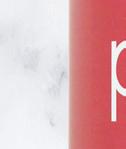

















































































































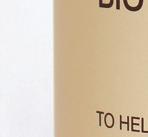
















recognition. Miami Body Lotion is an all-natural skin care with a Miami Beach vibe. The brand said the product delivers the ultimate in hydration—one of the biggest attributes consumers are looking for in skin care. Beyond hydration, the formula is created to lift the senses for a relaxing beach visit without leaving home. The body lotion is part of a full collection inspired by Miami that includes today’s more sought-after ingredients, including acne-fighting salicylic acid, niacinamide and vitamin E with jojoba. Other innovations from OKAY over the past year include an extended men’s selection and a line of gummies.






Natural, plant-based solutions are on trend but have been at the foundation of Pura D’ Or from the inception of the company 11 years ago. The brand’s hallmark is its clinically proven, hair care formulas that are infused with organic oils and natural extracts. The formulas combat hair thinning and hair loss due to breakage. Additionally, Pura D’Or’s products rejuvenate hair, strengthen strands, clarify, cleanse and help repair hair of all types.
Hair loss is currently one of the consumers’ biggest issues they are searching online to learn about remedies.
Pura D’Or is known for loyal followers of its full range of five shampoos and conditioners. Whether customers are starting to experience hair thinning or are looking for the ultimate resultsdriven solution, there is a Pura D’ Or formula that fills the need.
Even as the brand grows, parent company Vital’s International Group’s management still runs the company the same traditional way as when it was founded. Products are made in small batches and are free of harsh chemicals with no parabens or sulfates, and are hypo-allergenic, color safe and gluten free, to ensure consumers receive products that are safe, efficacious with guaranteed results.
There’s a pipeline of innovation to come. In 2024 Pura D’Or plans to expand the styling collection based on feedback from customers. The Apple Cider Vinegar, Advanced Formula, Hair Thinning Therapy and Professional Grade Biotin Shampoos and Conditioners continue to outperform year over year as marketing, public relations and social media efforts continue to synchronize with internal plans. In addition to the company’s focus on the hair care category, the brand includes USDA Certified Organic skin care products as well as a complete line of essential oils.

Milani is one of the fastest-growing brands in mass market makeup for good reason. Under the leadership of industry veteran Mary van Praag, Milani has debuted TikTok viral blockbusters that offer the quality of prestige brands at accessible prices. The brand is pumping out 30% sales increases year-over-year.
The brand is no newcomer to the business with a history of creating inclusive and affordable products for more than 20 years. Milani has always been a diverse brand centered on culture and community—way ahead of the course corrections many other brands are making, the company said.
Products are developed and produced in the top North American/ European beauty labs using luxurious formulas, rich pigments and high-performance ingredients.
Milani recently launched its #NoFilterJust Milani marketing campaign, celebrates skin that is free of digital retouching, facealtering apps and filters. In the past, beauty standards were dictated by magazines and advertisements that portrayed unrealistic images of perfection, the company said.
“#NoFilterJustMilani encourages people to embrace the unique features they were born with, while still supporting the freedom to enhance their appearance using makeup as a vehicle of selfexpression,” said Jeremy Lowenstein, Milani’s chief marketing officer. “With this, Milani invites everyone to feel confident in their skin and know that they are not conforming to any standard—they are simply being the best version of themselves.”
In tandem with the campaign, Milani promotes the use of its Conceal + Perfect 2-in-1 Foundation + Concealer, a 2-in-1, 45-shade strong hero item that helps build confidence and coverage. New products under the Conceal + Perfect include Conceal + Perfect Blur Out Powder and Conceal + Perfect Facelift Collection.

Milani Cosmetics also expanded its Stay Put Franchise this year with the Stay Put Infinite Eyeliner, Stay Put Brow Wax, Stay Put Liquid Lip Longwear Lipstick (available in 12 shades), and the Stay Put Tank Eyeliner in the colors brown and white. Other launches of note include the Highly Rated Lash Extensions Tubing Mascara and Gilded Eyeshadow Sticks.
Garcoa, which has amassed numerous REX Awards over the past few years, was selected for its portfolio that encapsulates a wide array of categories, from skin care and acne, to hand and body lotion, bath care, body care, hair care, feminine hygiene, analgesics, OTC products, laundry care and more. Garcoa holds the distinction of being America’s largest women-owned company for liquid personal care contract manufacturing, while also specializing in private label and control label production of numerous formats.
Garcoa leverages the latest advancements in production and comprehensive market research with over 1 million square feet of manufacturing power to develop items that exceed expectations of value. Conscientious of the part manufacturers play in the health of the environment, Garcoa aims to become completely carbon neutral by 2025. dsn



 By Sandra Levy
By Sandra Levy
In 2021, patients in the United States received 6.4 billion prescriptions, 91% of which were generic and biosimilar medicines. The use of these lower-cost medications saved $373 billion for patients, consumers, employers and taxpayers, per the Association for Accessible Medicines’ September 2022 U.S. Generic & Biosimilar Medicines Savings Report.

But make no mistake—providing these cost saving drugs is a daunting task amid a head spinning landscape that is characterized by deflation, intense competition, escalating costs and product shortages.
Yet generics firms are unstoppable in the face of these challenges, as evidenced by their Herculean efforts to innovate, develop and launch new products, and ensure a supply of critical products.
This month, Drug Store News asked several generic drug company executives to discuss their latest innovations and to weigh in on the future of the industry. Their answers shine a light on the optimism in the industry.


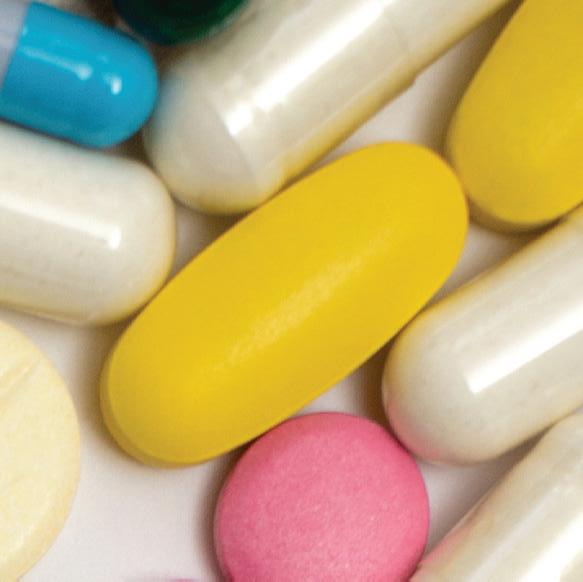







QDRUG STORE NEWS: DESCRIBE THE INNOVATIONS OR NEW PRODUCTS THAT YOUR COMPANY HAS RECENTLY INTRODUCED.






In generics, we expect 20 to 30 new product launches each year. In the first four months of 2023, we’ve launched 10 new generics, and we are on track to deliver over 30 new products this year. Overall, we have 99 ANDA’s pending with the FDA with 63% representing non-oral solid products. This includes 32 injectables, 10 ophthalmics, 10 topicals, 6 oral liquids and 4 inhalation products. Behind that, we have 81 pipeline products with 89% representing non-oral solid products in complex categories.
In generic injectables, specifically, we see our cadence of innovation continuing as we remain on track to file 10 to 15 more ANDA’s in 2023, including many complex injectables. We look to file our first 505(b)(2) readyto-use bags this year as well.
In inhalation, we recently completed clinical trials for generic ProAir and


• High Fill Rates
• Risk Management
- Multiple API Sources
- Extended Product Dating
• New Launches
- Lacosamide
- Fesoterodine
• Recognized Sales Team
- Awarded 2 DIANA Awards by HDA in 2022
- Service that Sets Us Apart
look to submit our ANDA shortly. In addition, we shared last quarter our new partnership to in-license the Soft Mist technology platform for the development of Respimat inhalation programs. We are pleased with the progress of our MDI programs, and expect to submit additional ANDAs in the coming years.
We are very excited about our ANDA for Naloxone nasal spray, our generic version of Narcan, which is currently under priority review with the FDA. We believe this product, which is now over-the-counter, will improve access to a critical, life-saving opioid overdose treatment for millions of people across America.

 JOHN DILLAWAY
executive vice president
JOHN DILLAWAY
executive vice president
Ascend is always looking for ways to differentiate itself in the marketplace. While Ascend continues to have a robust pipeline and anticipates launching 12 to 15 new molecules annually, more often than not these new releases are met with significant competition.
One way Ascend is creating extra value with its customers is with the launch of its educational platform Ascend Academy. Through Ascend Academy, Ascend has identified a number of important and timely topics, such as intellectual property, impurities, KSM’s and several others that hold both interest and importance in today’s market. Ascend then identifies an expert on the subject matter who puts together a specific agenda that is then presented to specific customers. These presentations are best done in a classroom type setting where Ascend personnel go straight to the customer’s location and meet with any number of customer employees who believe they can benefit from the presentation.
If travel or space is a concern, the Academy can also present virtually. So far, Ascend has put on many of these presentations, mostly in person at customers’ locations and the content and delivery have been widely cheered.
Aurobindo PAUL McMAHON president, oral solids division, APUSAAurobindo Pharma USA is continuously striving to achieve product differentiation, specifically through formulation development and novel delivery methods of complex products. A recent product we are excited to announce, for which we received FDA approval, is diclofenac sodium topical solution, 2%. This is Aurobindo’s first product launch in the United States that is a topical product with a pump. Additionally, it is the first ANDA approval developed by our team in the AuroLife Unit, which is from our 40,000-sq.-ft. facility in North Carolina. In our North Carolina facility, meter dose inhalers, dry powder inhalers and transdermal patches are being developed by the specialty research and development lab site, which houses over 50 scientists, including highly experienced pressurized metered-dose inhalers, aerosols and transdermal R&D teams.

Diclofenac sodium topical solution is indicated for the treatment of the pain of osteoarthritis of the knee(s). It is the generic of Horizon Therapeutics’ Pennsaid. Diclofenac Sodium Topical Solution, 2% has a market value of roughly $334 million for the 12 months ending March 2023, per IQVIA.

Dr. Reddy’s Laboratories announced the launch, in the U.S. market, of lenalidomide capsules, a generic of Revlimid. With this volume-limited launch, Dr. Reddy’s is eligible for first-to-market, 180 days of generic drug exclusivity for lenalidomide capsules in 2.5 mg and 20 mg strengths.

“You’ve got to continue to innovate, select the right products to develop and quickly come up with strategies where you can try and differentiate your products.”
— Milan Kalawadia, senior vice president, chief commercial officer, Dr. Reddy’s Laboratories





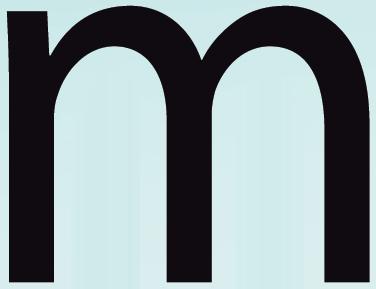












Hikma is a top 10 supplier of generic medicines in the United States and an important contributor to the U.S. healthcare system, expanding access to a broad range of injectable, oral, nasal and inhalable generic and branded pharmaceutical products for customers, healthcare providers and patients.



Our impact has been underscored by our continuing introductions of generic versions of important medicines, including Advair Diskus (fluticasone propionate and salmeterol inhalation powder). Within our specialty branded business, we also have delivered key innovations that are having a meaningful impact on the lives of U.S. patients.
We introduced Kloxxado (naloxone HCl) nasal spray 8 mg in the United States in 2021, for the emergency treatment of known or suspected opioid overdose. Kloxxado contains twice as much naloxone per spray as Narcan Nasal Spray 4 mg in a ready-to-use nasal spray to reverse the effects of opioid overdose, providing an important treatment option in addressing the worsening opioid epidemic.
And, last year we launched Ryaltris (olopatadine hydrochloride and mometasone furoate nasal spray) in the United States for the treatment of symptoms of seasonal allergic rhinitis (SAR). Ryaltris is the only fixeddose combination therapy that provides relief for the symptoms of SAR, both nasal and ocular in one easy-to-use nasal spray.

At Taro Pharmaceuticals, our vision is defined by reaching people and touching lives globally as a leading provider of valued medicines. Our mission is to meet the needs of our customers through innovation, development, manufacturing and marketing of the highest quality healthcare products.
Today, Taro has a generic portfolio with over 300 FDA approvals, including topical, oral and other dosage forms. More recently, Taro has introduced several notable products, such as a generic exclusive Naftifine HCl 2% Gel, Tretinoin Cream 0.025%, Alcohol Free Ibuprofen Oral Suspensions and Diclofenac Topical Solution 2%.
Taro continually invests in R&D, exploring new formulations, dosage forms and therapeutic areas. This proactive approach allows Taro to expand its product offerings, catering to emerging healthcare needs and filling gaps in the market.
DOLAN: Taro has a strong focus on specialized therapeutic areas, such as dermatology, as a strategic advantage. Taro’s expertise in niche segments provides us with a competitive edge, allowing us to address specific patient needs effectively. This targeted approach not only fosters patient trust but also offers long-term growth potential.
In addition to Taro’s commitment to maintaining high-quality standards, the company is dedicated to producing first-to-file generic products.
Through these efforts, the company plays a role in enhancing access to affordable medications and benefiting patients worldwide.
Over the past 70+ years, Taro’s commitment has remained the same: Growth through R&D in a wide range of therapeutic forms; high-quality generic

“More broadly, the industry continues to work on providing a strong, affordable and high-quality supply of generic medicines, and on addressing ongoing shortages of essential medicines.”
— Christopher Bonny, vice president of marketing and brand Rx operations, Hikma



















To see our full product portfolio spanning across varied therapeutic categories, please visit us at aurobindousa.com






Extensive portfolio of more than 250 API products across various categories such as anti-infectives, peptides, biosimilars, vaccines, polymers and more.






















































































































Robust product portfolio comprised of over 225 product families including oral solids, topicals, injectables, ophthalmics and inhalations.
Serve over 125 countries globally and include 17 API facilities with continuous expansion of our operations to meet our customers’ needs.

Designed to handle high speed packaging, in-line labeling and printing for bottles, blister packs, prefilled syringes, and multi-dose vials, while maintaining automated filling systems, tablet counters, along with a state-of-the-art vision system.
567,000 sq ft warehousing and distribution space provides capacity of up to 40,000 pallets, enabling increased safety stock, service levels, and order fulfilment to our customers.
integrated supply chain ensures unmatched quality and value for our customers
portfolio across international markets and becoming the leading manufacturer/supplier in dermatological.









BONNY: More broadly, the industry continues to work on providing a strong, affordable and highquality supply of generic medicines, and on addressing ongoing shortages of essential medicines. Our highvolume and state-of-the-art U.S. manufacturing facilities have an excellent record of FDA quality inspections. As Congress, the FDA and others look at ways to improve the availability of high-quality generics manufactured in the United States, we are well-positioned to meet this need.
BOYER: In generics, from a manufacturer’s perspective, the size and diversity of a company’s product portfolio matters tremendously. For Amneal, our diverse portfolio of approximately 230 retail generic products is continually expanding, moving up the value chain of complexity and it has continuously grown over the years.
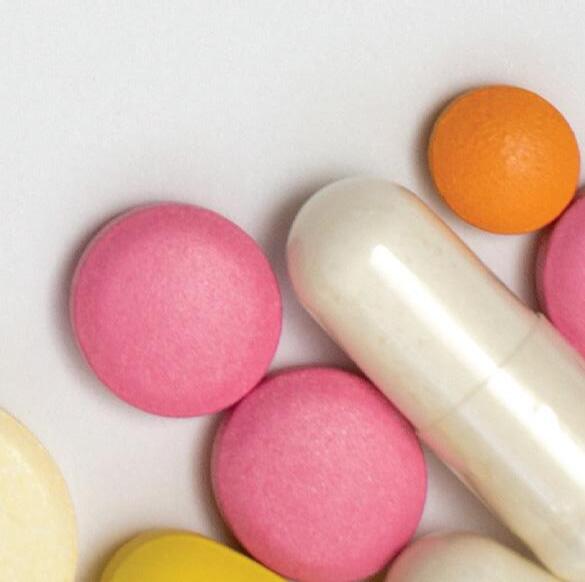


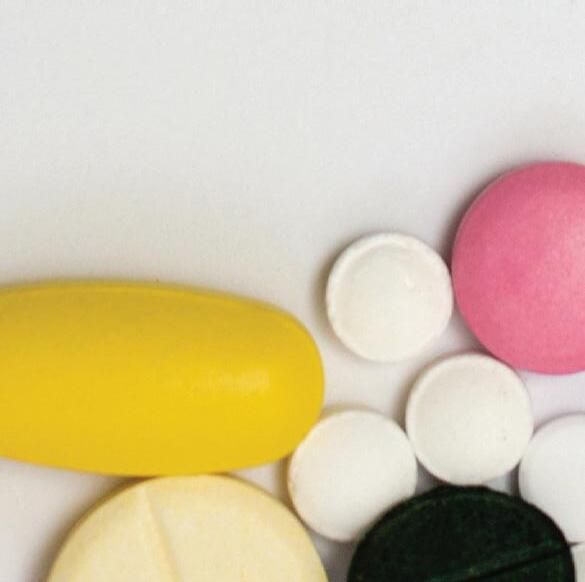
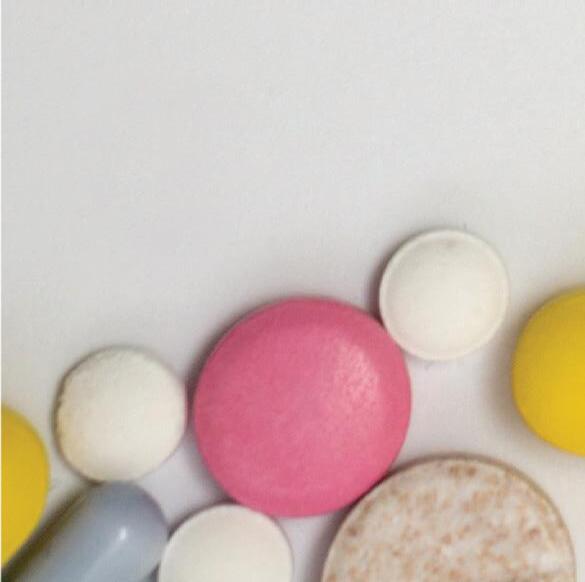
Another key concern is access to medicines and supply chain resiliency. Supply shortages have increased in the market for a variety of reasons, including increased demand for certain products, manufacturer shortages due to discontinuations, among a number of other issues. Overall, there is a need to secure America’s pharmaceutical supply chain by ensuring that essential medicines are manufactured in the United States. This was a clear lesson from the pandemic. From raw materials to finished products, domestic manufacturing is critical for the security and viability of our U.S. supply chain long-term.
DILLAWAY: It has been a difficult few years for generic manufacturers given historic deflation, unrivaled competition and now facing additional new expenses from serialization, opioid and DEA fees and state stewardship (drug takeback) programs. Cumulatively these factors are starting to cause casualties among manufacturers with several going out of business, several others in Chapter 11 and many others on a pathway there. This direction will continue over the next several years transforming the manufacturing landscape. In order to prevent this, behavior from both buyers and sellers must change. Each must recognize the value in the other and look to replace what has become a transactional relationship with a more partnership relationship. Can this happen? It will be a challenge given the precedent of behavior to date, but with survival at stake let’s have an optimistic view.
McMAHON: In fiscal year 2023, Aurobindo led the market in ANDA approvals and filed 49 ANDAs and received final approval for 59 ANDAs. In addition, the company successfully launched and relaunched 24 products. Aurobindo Pharma looks forward to launching many more products in the coming months, as the company continues to expand its portfolio with nearly 200 pending approval. This brings us to over 700 FDA approved ANDAs to date.
Aurobindo continues to invest in infrastructure in terms of plant and capacity expansions and building new facilities, all of which will fuel our growth. We are pleased to announce our new Luoxin facility, located in China, where we’ll be producing the blow-fill-seal inhalation products, the first of which will be levalbuterol, followed by albuterol, ipratropium and others, beginning early next year, if all goes to plan. Aurobindo remains focused on strengthening our existing businesses and developing a differentiated and specialty-driven product portfolio.
KALAWADIA: It’s a very competitive marketplace. While we may feel that we’re doing something unique from a product selection standpoint, or that we have a unique capability, the reality is that if you look across the competitors out there, somebody is doing what we’re doing. One of the big challenges is, you need to continue to be quick to market with products. You’ve got to continue to innovate, select the right products to develop and quickly come up with strategies where you can try and differentiate your products. dsn
“In generics, from a manufacturer’s perspective, the size and diversity of a company’s product portfolio matters tremendously.”
— Andy Boyer, executive vice president, chief commercial officer of generics, Amneal






For over 50 years, Uniweb, Inc. has been manufactured domestically allowing for delivery of durable products in weeks - not months.


































Designed with fewer components and engineered with tight tolerances, Uniweb products will not rip or tear and exceed stringent U.L. standards.

















































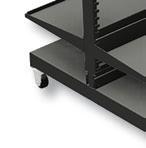


























Rooms and Counter runs:


UL Listed pre-engineered and factory built ... All connecting cables provided.
Electrical outlets per your specification; regular, utility, ISO, clean, dedicated.





Need more space or a change in operations layout, you’re not locked into your original design. Room sizes, counter run configurations, and accessories are unlimited!


When it comes to women’s health, pregnancy care seems to get most of the attention. The average woman, however, spends most of her life—following the onset of menstruation—in a nonpregnant state. Women have unique health care needs, therefore, tied to menstrual-cycle, contraception and menopause concerns.
“Women’s needs have largely been ignored or not focused on historically,” said Bindu Shah, senior director, U.S. Wellness Innovation for Haleon, a U.K. company with U.S. headquarters in Warren, N.J. “However, with the changing social backdrop of gender inclusivity and female empowerment [and] advances in science and technology, there is an increasing awareness of women’s health.”
That increasing awareness is leading not only to “more open consumer discussions” about menstrual health, menopause and other gender-specific health concerns, she pointed out, but also to more acceptance of these concerns on the part of society.
“There is an increasing recognition that the impact on women’s health often has a cascading effect on children and older adults,” Shah added, noting that women are often caregivers.
What’s more, the COVID-19 pandemic prompted more women to make self-care a priority, said Brittany Dedman, head of Pamprin marketing for Chattanooga, Tenn.-based Focus Consumer Healthcare. In fact, approximately 25% of women are prioritizing their bodies’ natural processes now, post-COVID.
“Women are becoming more empowered to personalize their health and lifestyle and becoming more open to discussing it with others,” she said.
Thankfully, health care product companies have been listening to today’s women. They have been investing in innovation geared toward women’s unique health and wellness needs—beyond pregnancy care.
According to the U.S. Office of Health & Human Services, the average woman experiences menstrual cycles for more than 40 years of her life. That’s a long period of time—and likely seems even longer to the many women who endure premenstrual syndrome, aches and pains and other challenges during their monthly cycle.
Recent innovations promise to help. For example, Bayer recently debuted Midol Heat Vibes for drug-free fast-acting relief from period-related back pain and cramps. As Kelly Fanning, general manager and vice president of the Whippany, N.J.-based Bayer Consumer Health/Pain division noted, women simply wear the heart-shaped disposable heat patches on the lower abdomen or lower back, underneath clothing, to get relief for up to eight hours. They can be used in addition to other medicinal or non-medicinal options.

For its part, Focus Consumer Healthcare is launching the Pamprin Botanicals Don’t Cramp My Style dietary supplement. Dedman said it helps treat PMS, as well as other period-related symptoms.

“We’ve developed a holistic approach to managing your period by treating the underlying symptoms while also masking more severe symptoms, if needed,” she said. “Our medicinal products, like Pamprin Multi-Symptom, stand well alone but also can be used in combination with the Pamprin Botanicals [Don’t Cramp My Style] supplement to take care of all symptoms in an empowering, justfor-you way.”
Fanning added that earlier innovations, too, can help women navigate their menstrual cycle challenges.
“We have a whole new generation who has not been exposed to our tried-andtrue Midol products,” she said.
Many women also worry about unwanted pregnancies during their menstruating years. Newer contraceptive innovations can help ease concerns for women.
One such option comes from Julie Products Inc. The new company launched an emergency contraception product that offers Levonorgestrel (1.5 mg), an FDAapproved, progestin-only choice that temporarily delays or stops ovulation. Amanda E/J Morrison, co-founder and president of the company, explained that before the launch, existing products on-shelf were “clinical and cold,” promoting a “feeling of a ‘second walk of shame.’” In contrast, the Julie product’s packaging is “friendly,” “approachable” and attractive.
“People don’t want a morning-after pill that feels cold, clinical and shameful,” she stressed.
In April, the company launched the firstever two-count emergency contraception packs in 5,600 CVS stores, Morrison added.

Healthcare product companies also are investing in innovation to help women navigate the challenges associated with menopause. In April, for example, Nashville, Tenn.-based pH-D Feminine Health introduced the Holistic Menopause Support supplement as part of a new portfolio of feminine health products. The capsules contain sage, rhubarb extract and concentrated
creatine and are said to promote the reduction of discomforts such as hot flashes, irritability, mood swings, night sweats and brain fog.
And Nature’s Bounty, a Hoboken, N.J.based Nestlé Health Science Company, just launched two products: the Nature’s Bounty Optimal Solutions hair growth and metabolism booster supplements. Although they aren’t specifically for menopause, they could provide some help to women experiencing menopause-related hair loss and/ or weight gain. According to the company, the hair-growth supplement features arginine silicate and magnesium biotinate and is clinically shown to grow thicker, fuller hair within three months. The metabolism booster boasts a clinically studied blend of citrus extracts, as well as black ginger extract, to help promote weight loss. (The FDA has not evaluated these statements, Nature’s Bounty noted.). dsn

“People don’t want a morning-after pill that feels cold, clinical and shameful.”
— Amanda E/J Morrison, co-founder and president, Julie Products Inc.Julie emergency contraception tablets offers Levonorgestrel (1.5 mg), an FDA-approved, progestin-only choice that temporarily delays or stops ovulation.
“Women are becoming more empowered to personalize their health and lifestyle and becoming more open to discussing it with others.”—
Brittany Dedman, head of Pamprin marketing, Focus Consumer HealthcareThe Pamprin Botanicals Don’t Cramp My Style dietary supplement helps treat PMS, as well as other period-related symptoms, holistically. Nature’s Bounty Optimal Solutions hair growth supplement is clinically shown to grow thicker, fuller hair within three months.


























































































































 By Debby Garbato
By Debby Garbato

In recent years, there have been more advances in diabetes care and management than there have been in decades. But the value of tools, medications and technologies is greatly diminished if patients do not know how to use them properly or are not well versed in watching their diet and other aspects that impact their condition.




















This is making consumer education crucial. Initiatives include informational leaflets to one-on-one sessions with specially trained pharmacists and dieticians. Community events are also popular. On the technology end, apps, videos, social media, webinars, websites and other tools reach patients wherever they are.
“Effective care of the disease revolves around an educationally centered approach,” said Rashelle Mason, VP of sales, trade and market access at Intuity Medical Inc. “Primary emphasis is on understanding blood sugar levels and comprehending how various activities, medications and foods impact them. While devices and technologies have improved, they alone cannot guarantee successful diabetes management.”
At retail, education can be a store-wide effort. Hy-Vee’s shelf tags, for example, highlight diabetic and pre-diabetic-friendly


foods. “A shelf tag may provide information on how the product has protein and fiber to stabilize blood sugars,” said Elisa Sloss, SVP, private brands.






Both dieticians and pharmacists help patients monitor conditions, added Angie Nelson, SVP, pharmacy. Dieticians’ offerings include classes, health screening events and fairs and speaking engagements. In April, dieticians launched Balancing Your Blood Sugar. The action-based, virtual group program facilitates positive changes through nutrition education, goal planning and discussions. Participants receive pre- and postprogram A1C and biometric screenings and four consultations with a dietician, said Sloss. Hy-Vee also offers videos and virtual classes that discuss recipes and meal prep.
Walgreens’ special training gives pharmacists expert knowledge about diabetes medications, continuous glucose monitors, nutrition and maintaining A1C and glucose levels, said Stacey Emmons, director of pharmacy and retail operations. More than 20,000 pharmacists have completed this training. Online, Walgreens Find Care provides patients with in-person and virtual healthcare expertise.

NDC: 08290-3205-50
BD NanoTM 2nd Gen Pen Needles have a unique ontoured ase to help compensate for too much injection force, a common challenge for patients injecting insulin.1*


BD NanoTM 2nd Gen Pen Needles are estimated to educe nt muscul nject n sk y 8x vs 4mm posted base pen needles.2†

Intramuscular injections have been shown to lead to nc e sed p n nd e te sk yp lycem . 3
Cons er s ens ng

BD N noTM 2n Gen Pen Nee les.
Experience the difference of a contoured needle base.





go.embecta.com/pharmacypartner
*N=230 patients with diabetes across Canada. Participants answered a survey as part of the cross-sectional observational behavioral study. BD helped fund this study.
† The study used in-silico probability model of needle penetration depth for posted-hub 4mm pen needles and average human tissue thickness measurements across a range of injection forces and recommended sites, pooled across gender and BMI.

REFERENCES
1. Bari B, Corbeil MA, Farooqui H, et al. Insulin injection practices in a population of Canadians with diabetes: an observational study. Diabetes Ther. 2020;11(11):2595-2609. . Rini C, Roberts BC, Morel D, et al. Evaluating the impact of human factors and pen needle design on insulin pen injection. J Diabetes Sci Technol. 2019;13(3):533-545. 3. Frid AH, Kreugel G, Grassi G, et al. New insulin delivery recommendations. Mayo Clin Proc. 2016;91(9):1231-1255.


embecta, formerly part of BD. BD is the manufacturer of the advertised products. embecta and the embecta logo are trademarks of Embecta Corp. BD and the BD Logo are trademarks of Becton, Dickinson and Company. All other trademarks are the property of their respective owners. © 2023 Embecta Corp. All rights reserved. BD-85393

Albertsons Cos. is linking multiple touch points of well-being with Sincerely Health. This digital wellness platform allows shoppers at 16 of its grocery banners to track and meet goals involving nutrition, food, pharmacy services and mental health. Consumers receive points that they can redeem for groceries.



Shoppers can log vitals and medication regimens for improved visibility and control. A “Diabetes Lifestyle” section provides information on prediabetes, meal planning, lowering cholesterol, carbohydrates’ role and basic information about the disease and its management. Albertsons also engages dieticians who help shoppers make appropriate food and recipe choices.
Fruth Pharmacy participates in a state-sponsored program in West Virginia where pharmacists help patients monitor and improve blood sugar and A1C levels. According to Drew Massey, director of pharmacy operations, pharmacists also conduct comprehensive medication reviews for high-risk patients who usually have comorbidities. Fruth educates consumers through health fairs and church events as well. And it educates consumers about different medical conditions each month. October is Diabetes Month.
Like many retailers, it faces pharmacy staffing challenges. “It’s hard to devote personnel,” said Massey. “You’re not going to get a good, sit-down session done in 30 minutes. You also must do the paperwork and enter information into the computer.”




Among suppliers, many educational initiatives are digital. Emphasis is on disease risks and management as well as proper use of their technologies by both consumers and pharmacists. Embecta, maker of insulin syringes and pen needles, emphasizes correct product use and nutrition via pamphlets, emails and digital initiatives. Topics include the “plate method” of balancing food groups and recognizing symptoms of hypoglycemia and hyperglycemia.
Kevin Duvall, associate director of strategic customer marketing and a former retail pharmacist, said pharmacists are often too time-pressed to provide comprehensive information. Initiatives close the gap. “How do we provide educational resources?” he added. “For me, it was when patients approached the counter, and you had 20 seconds to talk to them. You try to provide as much information as you can and then give patients something to walk away with as a resource.”
Targeting patients and health care providers, Medtronic Diabetes discusses proper use of devices like its InPen insulin pen and new MiniMed 780G, an insulin pump system whose meal detection technology automatically adjusts and corrects sugar levels every five minutes.

Initiatives include webinars, videos, articles, self-paced online modules and face-to-face training. “We work to meet patients where they are and create customized training that accommodate individuals regardless of computer literacy,” said Nancy Lea, MS, RD, CDCES, senior manager of professional affairs and clinical education.

Among suppliers, many educational initiatives are digital. Emphasis is on disease risks and management as well as proper use of their technologies by both consumers and pharmacists.LEFT: Aidance is beefing up online education efforts for its diabetes skin treatment products. RIGHT: Embecta emphasizes the “plate method” of balancing food groups to regulate blood sugar.






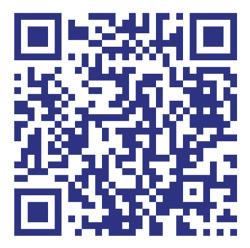



























From conventional pen needles to unique technologies, Unifine makes taking care of your patients easier with products that are available in a broad range of sizes and covered across almost every commercial plan. As one of the most trusted pen needle brands in the U.S., we put the patient first with innovative features that help enhance quality of life and drive adherence. We make patient access a priority by investing in programs that improve accessibility and affordability for all commercially covered patients.









Doing the right thing for your patients shouldn’t be difficult. Unifine® makes it simple.




















For more information, visit owenmumford.com/us. PLANBLOCKAD/OMI/0323/1/US




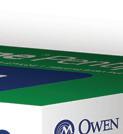







Content for professionals can be found on Medtronic’s Diabetes Digital University, which launched in July 2021.

Intuity focuses on teaching patients how to use its POGO (“press once and go”) blood glucose monitor and its complimentary app, Patterns. POGO has built-in test cartridges and automatically lances and collects blood, making testing simple and discreet. Patterns, a Bluetooth-connected device, lets users log food consumption, activities and blood sugars, said Mason. Information can be sent to health care providers.

Intuity educates consumers through Google search ads and via Facebook and Instagram. “We have a comprehensive visual outreach strategy,” said Dave Yamauchi, VP of marketing. Field reps and videos train pharmacists and dieticians.
Some experts contend that there has not been enough education regarding diabetes complications, particularly those affecting feet and eyes—even though diabetes is the leading cause of blindness and lower limb amputations.
“There’s always been a significant focus on monitoring devices and advanced technologies,” said Geolyn Gonzalez, VP of sales and marketing at Total Resources International, a supplier of diabetes wound care products. “At the store level, it’s more lifestyle management, like dietary support, stress relief and exercise. Little attention has been given to support additional medical care—specifically foot and leg ulcers and wound care—which are rampant to people living with diabetes.”
Gonzalez stresses the importance of teaching patients to address problems
in their infancy. “It’s important for consumers to know there [are] products that can help manage wounds at the onset,” she added. “The specific initiative is infection prevention.”
Total Resources conveys information through digital imagery, videos, and graphic and written content. At the store level, the packaging uses straightforward descriptions. QR codes provide additional information.
Aidance, which makes diabetic ulcer treatment kits, is expanding online education efforts for Terrasil, which stimulates skin cell growth and expedites the healing of open wounds. Perry Antelman, CEO, believes the internet is where people learn the most. “We’re investing a lot in search terms because people look for things like, ‘How do I help heal…manage…etc.’ And videos really help. We’re ramping up on social media and looking at influencers.”
Like Gonzalez, Antelman pointed to the importance of educating people about early intervention. “Whatever can be done to help manage home care will help people most. We want to get that message out amidst all the clutter.” dsn
TM
For people who take multiple daily injections (MDI). InPen empowers you and your patients with actionable data you've never had from your MDI patients, until now.
To learn more about smart insulin pen technology, register to attend a virtual medical education webinar today! Scan to register!

Smart insulin pens connect to a mobile app to provide dosing calculations, reminders and CGM system integration.

The Bluetooth® Wordmark and logos are owned by Bluetooth® SIG, Inc. App Store® and the App Store logo are trademarks of Apple Inc. Google Play™ and the Google Play logo are trademarks of Google LLC.
Important Safety Information: InPen™
The InPen™ is a home-use reusable pen injector for single-patient use by people with diabetes under the supervision of an adult caregiver, or by a patient age 7 and older for the self-injection of a desired dose of insulin and for calculating an insulin dose or carbohydrate intake based on user entered data. A healthcare professional must assist in dosage programming of the device prior to use, based on various patient-specific criteria and targets. The InPen™ requires a prescription. For additional product and safety information, please consult the Instructions for Use and bit.ly/InPenSafety.
© 2023 Medtronic. All rights reserved. Medtronic, Medtronic logo and Engineering the extraordinary are trademarks of Medtronic. Third party brands are trademarks of their respective owners. All other brands are trademarks of a Medtronic company.
1 year warranty. US-DBA-2100408 v2.0
Walgreens is using it to streamline vaccine scheduling, and CVS to fill prescriptions remotely. Walmart is leveraging it for negotiations with equipment suppliers, and Kroger for personalizing employee training.
The “it” is artificial intelligence, and usage is growing across retail businesses, in areas ranging from operations to customer service. AI has been prominent in the general news with the emergence of the generative AI tool ChatGPT. Meanwhile, some high-profile technology leaders have warned about societal risks from uncontrolled development of AI.
Food and drug retailers, however, are staying focused on business-specific applications. To get a better understanding of AI’s future at retail, I asked ChatGPT and a “human” technology expert. See which one gave me the most insightful responses.
I asked ChatGPT about the future uses of AI for supermarkets and drug stores. ChatGPT quickly returned a very good list of top applications. These included inventory management, customer assistance, prescription verification, shelf monitoring, fraud detection, personalized marketing and predictive analytics.
The only problem was that I had asked ChatGPT about the future. I didn’t come away with a sense of how tomorrow’s uses may evolve or be different from those of today. The result may indicate the tool’s limitations in making detailed forecasts about a future that contains many variables.
I decided to turn to a human for more insight. Humans are still good for many things, especially those who are experts in topics. I reached out to Gary Hawkins, CEO of the Center for Advancing Retail and Technology (CART), about what’s down the road for AI at retail.
He emphasized that “AI is being infused in almost every technology today,” with examples including
 By David Orgel
By David Orgel
labor scheduling, demand forecasting and price optimization. Capabilities will be accelerated by faster and cheaper computer processing power.
An emerging area of AI opportunity is computer vision, which helps support augmented reality systems.
Hawkins gave the example of a store shopper picking up a package, leading a computer vision system to recognize the item and launch a phonebased digital customer experience that provides information or a video about the product.
“AI underlies computer vision, helping an augmented reality system understand what it is looking at,” Hawkins said. “I see this leading to the next generation of smart glasses.”

AI-powered voice applications will further enhance customer service, by offering such things as in-store meal recipes for shoppers, said Hawkins. He expects a lot more voice capabilities in the next year or two, driven by AI.
AI will increasingly support the work of store associates and business leaders, such as category managers, Hawkins said. These managers would make initial decisions about new products and then AI can take over to determine factors such as product location on store shelves and levels of inventory needed.

AI has the potential to drive business success and free up employees for higher-level roles. Hawkins did a very good job forecasting the future landscape, and he urges retailers to experiment by making strategic investments.
“Retailers can’t wait five years,” he said. “First movers will start to realize big advantages.” dsn
“AI has the potential to drive business success and free up employees for higher-level roles.”


Dr. Reddy’s generic medications have been making life more affordable for patients for over 40 years. Today, our commitment to providing access to high quality, more affordable medications that patients and their doctors can count on remains unchanged. Why? Just ask the more than 23,000 committed employees at Dr. Reddy’s who know that Good Health Can’t Wait.
www.DrReddys.com